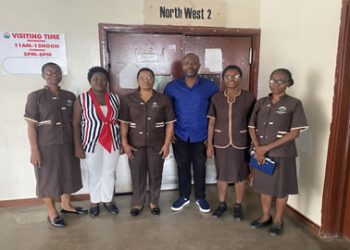
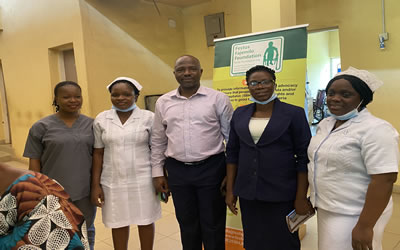
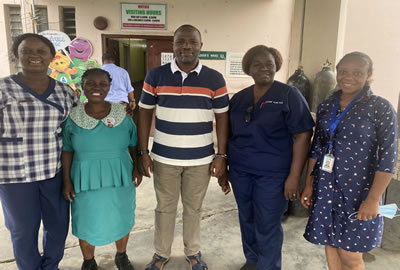
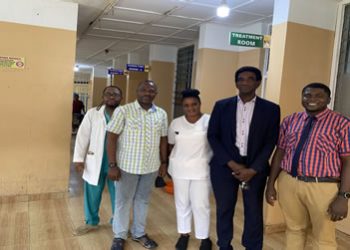
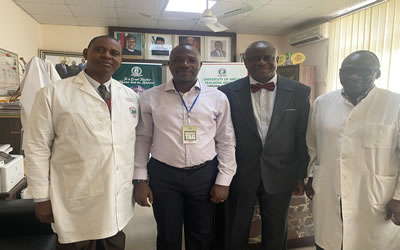
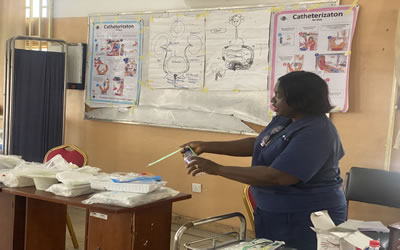
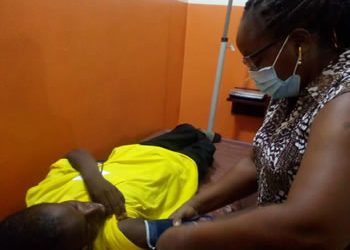
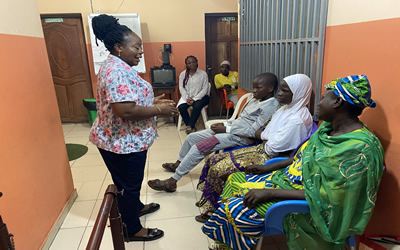
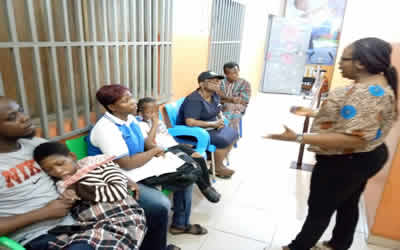
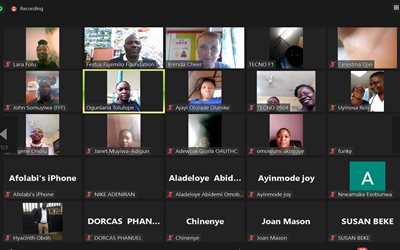
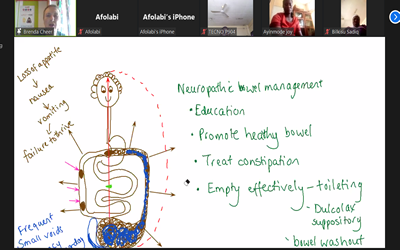
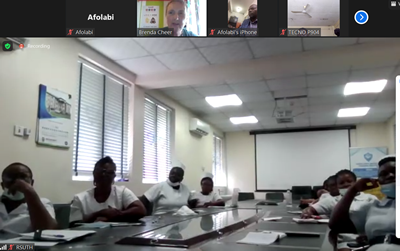
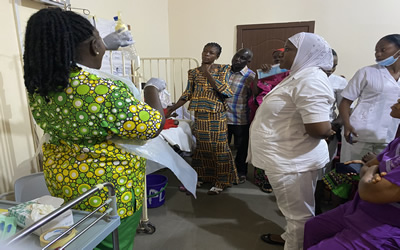
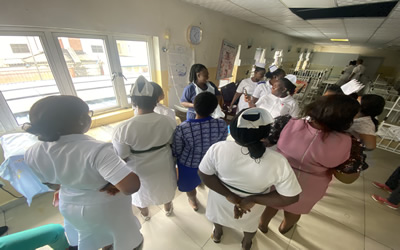
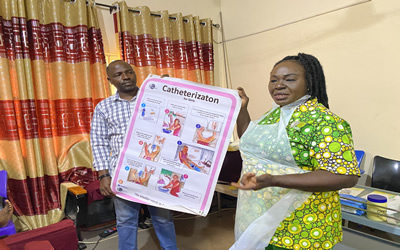
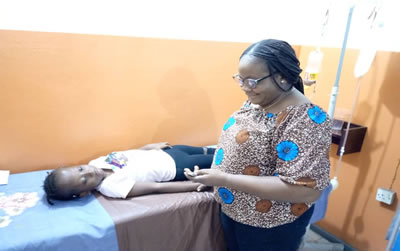
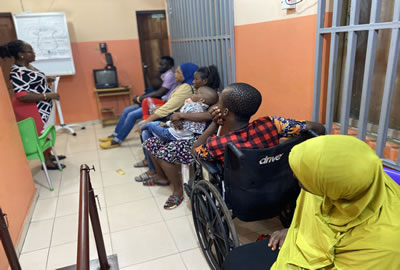
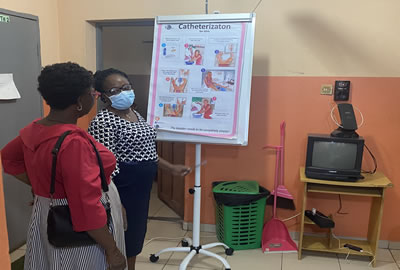
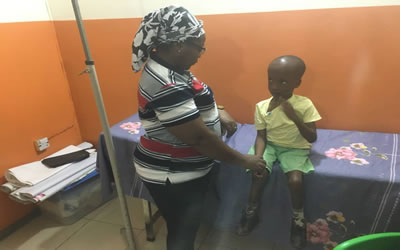
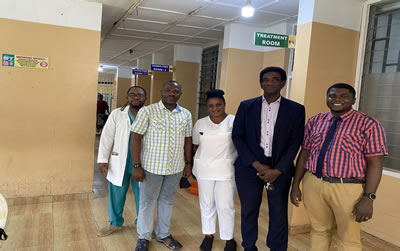

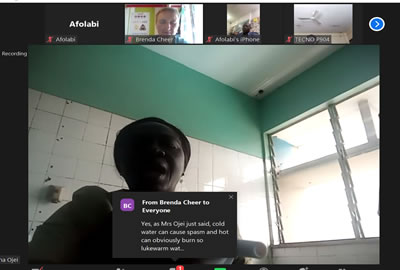
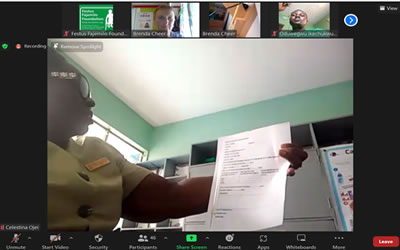
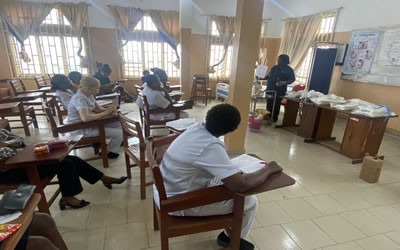
CONTINENCE MANAGEMENT
Saving Lives! Improving Futures Project (Continence Management)
Background: (2017 till Date)
Having one form of disability or the other comes with some underlying health challenges, and among this is difficulty in controlling the movements of the bowels and bladder for persons with Spina Bifida.
Incontinence is the inability of person to have control over passing of urine or feces in a socially acceptable and hygienic way.
All children born with spina bifida will have a neuropathic (nerve damaged) bladder and bowel. With no continence intervention, a significant proportion of children with spina bifida will experience kidney problems, which without treatment would result in renal failure. Most will wet and soil every day.
In the absence of good quality, highly absorbent disposable nappies or pads, skin soreness is hard to avoid. For some, the sores will develop into deep wounds that are almost impossible to heal.
In developing countries like Nigeria, the situation is compounded by high level of poverty, profound cultural and spiritual stigmas and paucity of medical equipment and personnel.
Four areas of continence management:
Clean Intermittent catheterisation – CIC – draining the bladder on a regular basis to reduce the risk of urinary tract infection (UTI) and kidney damage.
Bowel washouts – to evacuate the faeces daily to prevent soiling, and to avoid build-up of stool in the lower bowel which can impact on the health of the bladder.
Measuring bladder pressure – monitoring the pressure within the child’s bladder is used to document the behaviour of the bladder and allows the success of the treatment to be measured.
Instillation of Oxybutynin – anticholinergic medicine to reduce bladder overactivity by relaxing the bladder muscles. This reduces wetting and preserves renal function.
Effects:
Any person living with incontinence is;
- psychologically affected by it.
- Self-esteem is
- Educational opportunities are reduced.
- Employment is difficult to obtain.
- Relationships between family and friends are hard to maintain.
Justification:
To address the challenges mentioned above, Festus Fajemilo Foundation launched the Saving Lives! Improving Futures (SLIF) Project with technical support from Shine Charity UK in 2017and funding support from a host of international donors including Wales for Africa Hub, Gay & Keith Talbot Trust U.K, Child Help International (CHI), International Federation for Spina Bifida & Hydrocephalus (IFSBH).
The SLIF project is currently (February 2024 – January 2025) funded by the UK Department of Health & Social Care (DHSC) under the Global Health Workforce Program managed by Tropical Health & Education Trust.
The aims to enhance the skills, knowledge and capacity of health workforce in the delivery of quality continence care and management to increase the life chances and futures of babies, children and young adults with spina bifida in Nigeria.
Key Achievements:
- Established partnership with 6 public health facilities namely
- Lagos University Teaching Hospital (LUTH).
- Obafemi Awolowo University Teaching Hospital Complex (OAUTHC).
- University College Hospital (UCH)
- Rivers State University Teaching Hospital (RSUTH).
- University of Benin Teaching Hospital (UBTH)
- University of Abuja Teaching Hospital (UATH)
- Festus Fajemilo Foundation continence clinic
- Establishment of quarterly continence working group meeting to provide ongoing specialist advice, peer support and promotion of best practices for and among healthcare professionals.
- Built and strengthened the skills, knowledge, and capacity of 60 healthcare professionals on delivery of continence care and management.
- Regular supply of vital continence equipment to partner public health facilities for access by children with spina bifida free of charge.
- Improved access to quality continence management and care for up to 150 babies, children and young people with spina bifida.
Target with the current THET Grant
- Establishment of new partnership with two public health facilities – Usmanu Danfodiyo University Teaching Hospital (UDUTH) Sokoto and Federal Medical Centre (FMC) Umuahia to reach more beneficiaries and expand the reach of the project to other regions of Nigeria.
- Recruit more health workforce and community outreach workers into the project thus increase the number of healthcare professionals to 89 with skills, knowledge and capacity to deliver continence care and management.
- Increase access of at least 250 babies, children and young adults with spina bifida to continence care and management.
- Provide outreach support in 8 selected local communities for up to 96 families of children with spina bifida on adherence to best practices in continence management.
Saving Lives! improving Futures (SLIF) Project !!
Incontinence means when a person has no control over bowel and bladder function. There is inability to pass urine and/or feces in a socially acceptable and hygienic way.
All children born with spina bifida will have a neuropathic (nerve damaged) bladder and bowel. With no continence intervention, a significant proportion of children with spina bifida will experience kidney problems, which without treatment would result in renal failure. Most will wet and soil every day. In the absence of good quality, highly absorbent disposable nappies or pads, skin soreness is hard to avoid. For some, the sores will develop into deep wounds that are almost impossible to heal.
In developing countries like Nigeria, the situation is compounded by high level of poverty, profound cultural and spiritual stigmas attached to medical issues of this nature, paucity of medical equipment and personnel.
Any person living with incontinence is psychologically affected by it; self-esteem is low, educational opportunities are reduced and employment is difficult to obtain. Relationships between family and friends are hard to maintain.
Four areas of continence management:
Clean Intermittent catheterisation – CIC – to drain the bladder on a regular basis to reduce the risk of Urinary Tract Infection and kidney damage.
Bowel washouts – to evacuate the faeces daily to prevent soiling, and to avoid build-up of stool in the lower bowel which can impact on the health of the bladder.
Measuring bladder pressure – monitoring the pressure within the child’s bladder is used to document the behaviour of the bladder and allows the success of the treatment to be measured.
Instillation of Oxybutynin – anticholinergic medicine to reduce bladder overactivity by relaxing the bladder muscles. This reduces wetting and preserves renal function.
Since 2017, FFF has worked with its UK partner – Shine UK with funding from Hub Cymru Africa (Wales for Africa Hub) to save lives through promotion of continence among children with spina bifida hydrocephalus thus eliminating social isolation, preserve renal function and improve overall quality of life. Affected children identify this program as the changing point in their lives, enabling their full integration and participation in society. From the just ended grant cycle of 2022/2023, the following achievements were recorded.
- Partnership and establishment of 6 public healthcare facilities namely Lagos University Teaching Hospital (LUTH), Obafemi Awolowo University Teaching Hospital Complex (OAUTHC), University College Hospital Ibadan (UCH), Rivers State University Teaching Hospital (RSUTH), University of Benin Teaching Hospital (UBTH) and University of Abuja Teaching Hospital (UATH) in south-west, north-central and south-south Nigeria.
- Regular supply of vital continence equipment to six public health facilities for pro bono use by babies, children, and youngsters with spina bifida and hydrocephalus.
- Improved health and quality of life for 155 babies, children, and young adults with spina bifida and hydrocephalus through access to comprehensive continence management and care.
- Engagement of 200 parents and other family members in continence management knowledge thus enhancing care support to their children.
- Linkage between Wales (United Kingdom) and Africa (Nigeria) established as a result of regular communication and planning meetings established. As well as exchange of knowledge and best practice between healthcare professionals in Wales and those in Nigeria.
- 60 healthcare professionals (nurses) have gained knowledge in continence care and management and have improved capacity to manage incontinence in children with spina bifida and hydrocephalus.
- Development of disability-inclusive data collation collection tools and adoption by all the partnering hospital facilities to ensure monitoring of progress in individual patients as well as facility activities.
- Peer learning and mentoring between teenagers and young people from Wales and Nigeria providing an opportunity to share experiences, talk about hopes for the future and what living with Spina Bifida meant to them.
- Virtual training on covid-19 knowledge and preventive skills: Training was used to strengthen healthcare professionals on effective communication with patients to address misinformation amidst covid-19 vaccination.
- Continence management training for 60 healthcare professionals in public health care facilities across three of the regions mentioned above.
- On-site practical demonstrations on continence care and management within the premises of partnering public healthcare facilities.
- Quarterly continence working group of healthcare practitioners in Wales and Nigeria for knowledge sharing, learning and promotion of best practices.
- Establishment of FFF continence clinic as back-up to partnering public health facilities.
